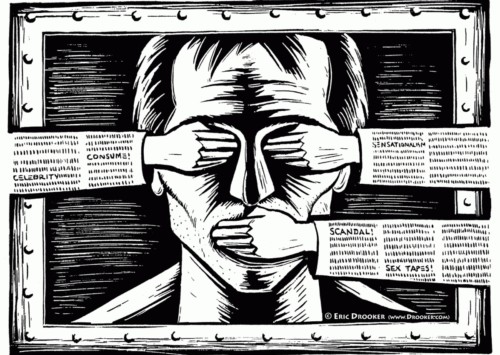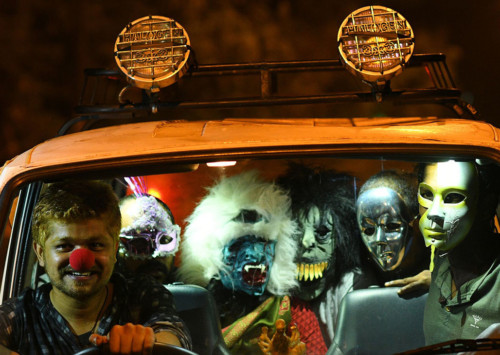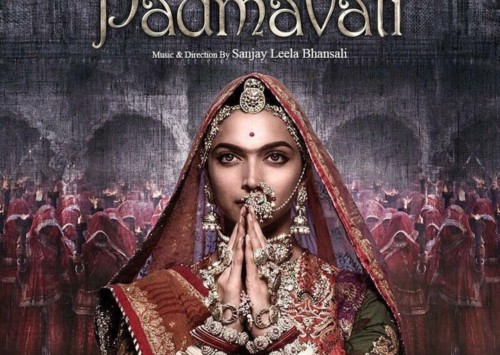Padmavati: Work of fiction provokes violence

Earlier slated to roll on the floors on December 1 this year, the release has been withdrawn from the calendar for now
Amidst the outbreak of violent threats against the release of upcoming Bollywood film Padmavati, which has allegedly hurt the sentiments of various Indian caste groups for manipulating history, a man in Rajasthan lost his life yesterday to the fuss. As protests take an ugly turn, various Bollywood and political personalities condemn the intensity, while some support it. In the thick of events, the restriction on freedom of expression is overlooked.
Of late, the Indian film industry has been witnessing ideological conflicts that are taking shape of physical violence and open threats. Every time a thought-provoking movie makes an appearance, it doesn’t go well down the throat of either extra sensitive people or the Indian Film Certification Board. A charcoal scribble saying ‘we hang not just effigies Padmavati’ next to a hung dead body on the wall of the Nahargarh Fort in Jaipur today, added fuel to the Padmavati controversy in the country.
A film is being used by some for political leverage.. does calling to behead a gentleman in any way legal, tolerable or democratic!!? How then are the powers that be quiet about it? No arrests, no warnings even! History cannot be distorted, no question abt it.. contd
— Rohit Roy (@rohitroy500) November 21, 2017
What kind of a country are we becoming???? Open death threats!!! Hope our Honorable Government takes quick action. #Padmavati #KyaMeraBharatMahaanHai? https://t.co/LTdju1ridW
— Riteish Deshmukh (@Riteishd) November 19, 2017
Padmavati, a movie based on the 13th-century Rajput queen has angered several caste groups and state governments as they accuse director Sanjay Leela Bhansali of distorting history and defaming the Rajput queen Padmavati in his movie. Shri Rajput Karni Sena – a Rajput caste group, amongst other right-wing organisations are protesting a romantic relationship or a dream sequence between Padmavati (Deepika Padukone) and Alauddin Khilji (Ranveer Singh), allegedly portrayed in the movie. Earlier Bhansali was compelled to testify that no such romantic scene, song or dream sequence between Padmavati and Khilji exist in the film; however, the protests fail to stop.
Member of an Indian political party Bharatiya Janata Party (BJP) from Haryana had earlier offered INR 100 million for beheading Padukone and Bhansali and threatened to burn every theatre if the film is released. Following the threat, various demonstrations burning the film’s posters and effigies of Bhansali were organised by members of Bharat Kshatriya Samaj.
However, one of the things that get unnoticed amongst the stir of social and political forces is freedom of expression and art.
A fuss over nothing?
Though a select group of journalists who watched the film say that it doesn’t distort history in any way and celebrates the pride of the Rajput community, the film has been banned in various Indian states including Punjab, Madhya Pradesh, Rajasthan, Uttar Pradesh, Gujarat, and Haryana. According to Amarinder Singh, Chief Minister of Punjab, cinematic licence does not mean that anyone has the right to twist historical facts and those hurt by distortion of facts have the right to protest. Following his speech, Vijay Rupani, Chief Minister of Gujarat took to Twitter to express that such issues spoil the environment of the country.
The Government of Gujarat will not allow #Padmavati – a movie hurting sentiments of Rajputs – to get released in the State. We can’t allow our history to be distorted. We believe in freedom of speech & expression but any foul play with our great culture is not tolerated.
— Vijay Rupani (@vijayrupanibjp) November 22, 2017
However, the Supreme Court (SC) in India rejected a petition seeking censor of ‘objectionable scenes’ on the ground that the film has not been vetted by the Indian Central Board of Film Certification (CBFC) for clearance yet, and the journalists who have attended the special screening deny the alleged distortions in the movie. On the same lines, Delhi High Court overruled a petition against the release of Padmavati, describing it as hopeless, misconceived, and an encouragement to people agitating against the Bollywood film.
While the censor board in India is yet to watch Padmavati, the film has been cleared for release by British certification body – British Board of Film Classification, to which the Rajput Samaj in the UK launched a boycott. The makers of Padmavati, however, have no plans to release the film as of now either in the UK or in India, for commercial reasons. The historical epic, which was slated to release on December 1 this year, has been withdrawn from the calendar after the series of violence in the country and the makers are yet to announce the new release schedule.
This is not the first time when political and social tensions in India have boiled over to Bollywood and transcended the limits permissible in freedom of expression. Films like Goliyon ki Raasleela: Ram-Leela, Ae Dil Hai Mushkil, Haider and Sexy Durga, amongst others, also fell victims to political overtones, mythological or social offences. And Padmavati’s story is rather ironic – of a woman who puts her honour above life, and shows defiance of trouble. But here we are witnessing India’s core values being put to flames.












